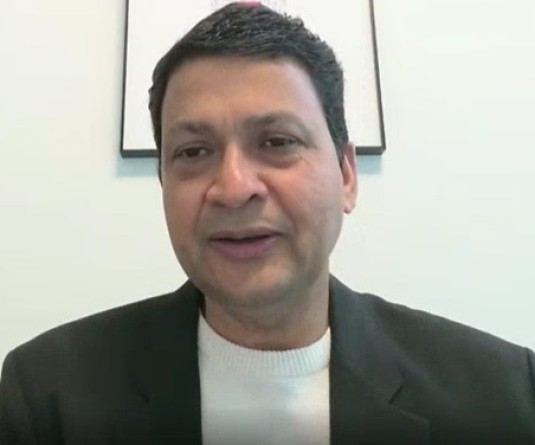IANS Photo

New Delhi, November 1 (IANS) Remember how Alexa and Google Home got us intrigued and excited? They are now things of the past as we see GPT (Generative Pre-Trained Transformer or generative artificial intelligence or AI) taking control of almost every sphere of our lives. The increasing use of GPT in a short span of time has made AI a household name. Supporting the mass adoption of generative AI technology are data centres.
Digital technologies, which have been around for more than half a century, are now being adopted on a large-scale because of its affordability and availability, giving way to a deluge of data that needs to be stored some place. Riding on this wave of cloud adaptation and digitisation, India has, in recent times, witnessed massive growth in data centres.
Data centres have evolved over the years. From a small room housing few servers that mainly stored critical information, these are now purpose-built mammoth facilities consuming huge energy.
Size of a hyperscale data centre is scaling from 5-10 MW to 100s of MW, indicating a paradigm shift in its infrastructure design.
There is a need to build flexible data centres that can handle wide range of power density due to increasing use of AI technologies. Since there is high impact of high-density racks on the data centre design and technologies, upcoming data centre facilities are being designed to address sustainability grounds up.
As this industry grows in India, so does the demand for energy. Since data centres consume massive amounts of energy, there is a pressing need to adopt renewable energy to meet ever increasing energy demands.
AdaniConneX, a 50:50 JV between Adani Enterprises and EdgeConneX, is building future-ready data centre infrastructure that is energy secure and sustainable, leveraging Adani Group’s vast expertise in renewable power generation, transmission, and distribution.
Capitalising on global expertise of EdgeConneX in building purpose-built hyperscale data centre infrastructure, AdaniConneX is on a mission to build 1 GW data centre platform across the country.
“Our world is being defined by our ability to generate, store, access and move data,” said Gautam Adani, Chairman, Adani Group.
“With the advancements in AI, high-definition content and massive digitisation, the need for compute and storage is increasing exponentially. With geographical advantages of land for renewable energy and a long coastline, India is well positioned to host data centre parks not only for us but also for those nations that are short of land or energy.”
According to CII-Colliers report, as of August 2023, the data centre capacity across the top 7 cities in India stands at 819 MW, spread across 11.0 million sq. ft. As data localisation becomes a norm, India’s market is likely to see accelerated growth, opening huge opportunities for developers and operators in the space in next 2-3 years.
At the same time, abundant availability of space, established global connectivity through submarine cables, comparatively lower land and power costs, and burgeoning demand will further lead data centre operators to explore India, resulting in fast-paced growth of the sector.
The report mentions Mumbai being the most evolved data centre hub, hosting half of the country’s data centre capacity.
The Maximum City also features in the top 5 APAC region markets, along with Beijing, Shanghai, Tokyo and Sydney. While Chennai, Bengaluru and Delhi-NCR are already relatively established markets, it is important to note Kolkata’s potential of being a zonal data centre hub for East India.
Adani Group is aiming to deploy 45 GW of renewable energy capacity by 2030, while AdaniConnex – the JV between Adani Group and EdgeConnex, plans to build 1000 MW data centers over the next 10 years.






